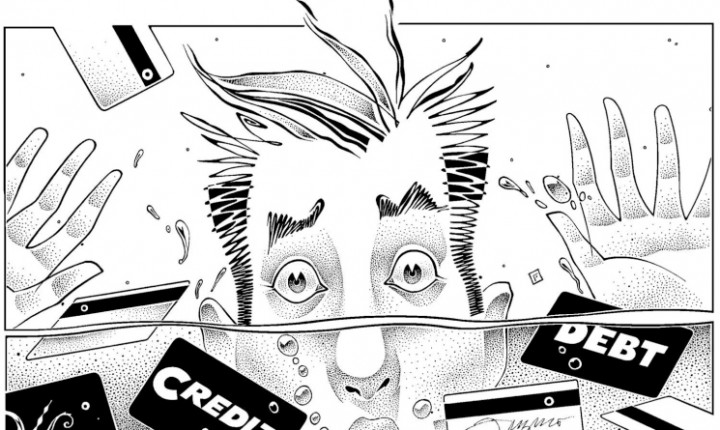Dealing with Holiday Debt
 A new year begins, but unfortunately you overspent on Black Friday, Cyber Monday, over the holiday period, or on all three occasions…resulting in debt accumulation. Life happens and budgets are like diets or exercise routines—difficult to stick to sometimes.
A new year begins, but unfortunately you overspent on Black Friday, Cyber Monday, over the holiday period, or on all three occasions…resulting in debt accumulation. Life happens and budgets are like diets or exercise routines—difficult to stick to sometimes.
So now it’s time to take back control of your finances and practice responsible financial management.
The debt you incurred may take a month or so to clear but try not to beat yourself up over it or lose sleep. If sticking to a budget was easy, no one would ever incur credit card debt! There is no doubt that it feels good to treat loved ones, family, and friends over the holiday period (besides, it’s often the only time you can show your appreciation). Look forward to good financial practices instead of looking back at your (possibly) inappropriate spending. The majority of Americans have cleared their holiday debt by the springtime.
It may be necessary to restrict activities/spending for the short term (short, sharp, shock) just to get back into the black. In general, I advocate sustainable long-term budgeting actions, but if you were managing your money well up until the holiday season and only just accumulated debt on your otherwise clear credit card, short term abstinence in the spending/shopping area and regular payments on your credit card(s) may be all you need to get back on track.

Take immediate action to rectify the situation by following basic principles:
- Be aware of credit card minimum payment amounts and payment due dates
- Set reminders to make payments on time
- Try to pay more than the minimum payment amount if possible
- Avoid social situations where spending is inevitable/unavoidable
- Avoid using credit cards for a while to prevent a balance increase
- Curb spending by cutting out the “wants” in favor of “needs”
- Plan a budget that includes “savings” once the debt is eliminated
- Keep a check on your credit score free of charge at creditkarma.com
- Keep a check on your credit history for ID theft, etc. Visit annualcreditreport.com where you can pull one credit report from each of the three credit bureaus free of charge over a 12-month period
Debt elimination strategies:
- Decide which method motivates you the most: paying off the debt with the higher interest rate or the debt with the lowest balance
- Calculate how long it will take to pay off the debt to confirm it is doable
- Set goals as to how much to pay off each pay period to provide structure and discipline
- Keep a record of payments and balances to monitor your progress
Actions to prevent getting into debt during the holidays:
- Take a part-time holiday job for additional earnings
- Set a holiday spending budget to control impulse buying, setting limits for each person
- Withdraw holiday cash or place in a separate account to keep it isolated and prevent overdrawing
- Save funds throughout the year specifically for holiday gifts, food, and expenses (Christmas Club, etc.)
- Give less expensive or homemade gifts…after all, it’s the thought that counts!
- Reduce the number of gifts given by using the Secret Santa method for family, colleagues, and friends or just exchanging cards
Dealing with long-term debt:
- Seek advice from your financial institution (credit union or bank) on ways to consolidate and manage debt
- Approach a reputable debt management agency that may be able to reduce debt balances and/or interest rates. mpoweredcolorado.org is a nonprofit agency that helps individuals set up a debt repayment program to eliminate debt and rebuild credit
- Avoid debt relief agencies that charge large fees and may not leave you debt free
The first step in improving your finances is accepting that you need to make changes. Many people bury their head in the sand and refuse to face the reality of the situation, which leads to increased debt accumulation. It’s important to realize that managing your finances is a challenging lifestyle change.
Congratulations for being proactive enough to read this article and to consider taking action!
Related Posts
« Walking Through The Gates of Hell Remodeling Your Home: The Pros, Cons, and ROI »













